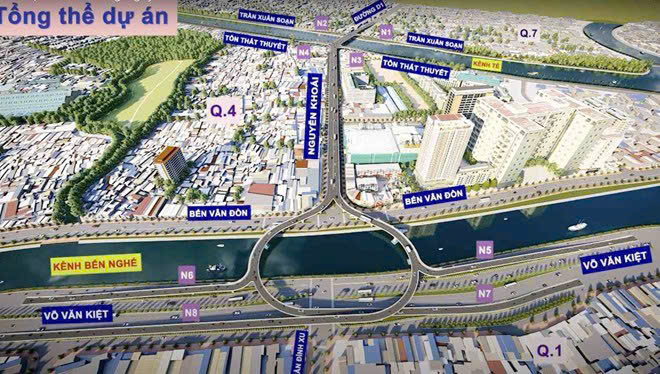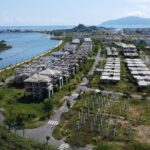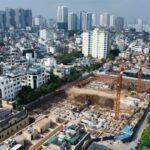On June 11th, representatives from the Management Board of Investment Projects for Transport Construction (Transport Management Board – investor) shared that they are expediting related procedures such as contractor selection, technical design finalization, and organizing bidding for the construction commencement of the Nguyen Khoai Bridge-Road project in November 2025.
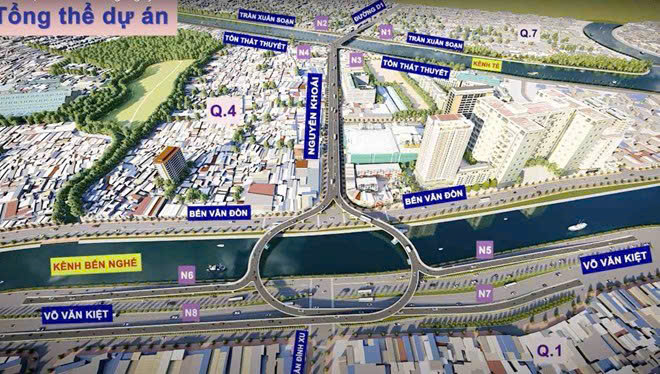
Regarding compensation and site clearance progress, the Transport Management Board stated that the project affects approximately 147 cases, including 12 cases of complete clearance, with compensation costs estimated at VND 1,000 billion.
So far, the Transport Management Board has advanced VND 929 billion to the District 4 Compensation Board. It is expected that the local authority will complete the compensation process and hand over the site in October 2025, allowing for the project’s commencement in November 2025 and completion in Q4 2027.
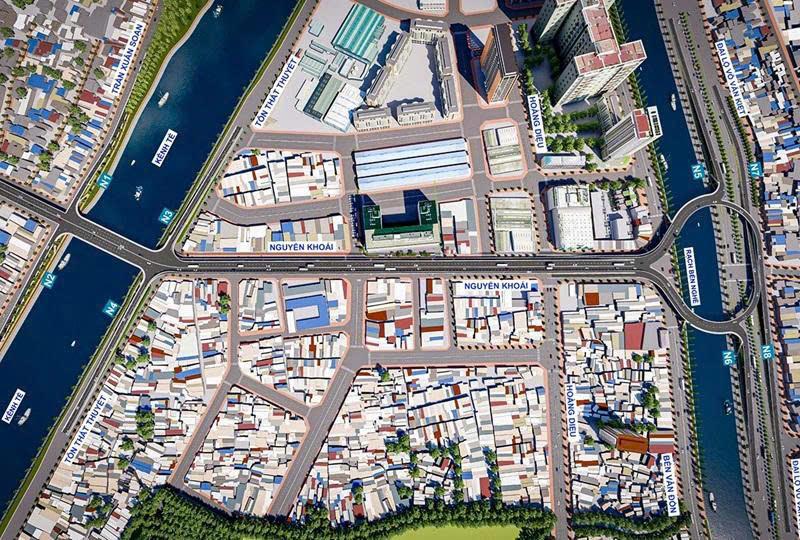
Nguyen Khoai Bridge-Road Project’s Perspective
The Nguyen Khoai Bridge-Road project has a total length of nearly 5 km, including a 2.5 km long bridge with a width ranging from 6.5 to 25.5 m, and a road section over 2.3 km wide, ranging from 26.5 to 61.5 m.
The structure starts from D1 Road (connecting Saigon University with Nguyen Van Linh Street and Him Lam residential area in District 7). The main bridge then crosses Te Canal via an elevated bridge along Nguyen Khoai Street. The bridge continues over Ben Nghe Canal, connecting to Vo Van Kiet Street in District 1.
In addition to the main route, the project includes branches connecting to Tran Xuan Soan, Ton That Thuyet, and Vo Van Kiet streets below.
Upon completion, the VND 3,700 billion project will help reduce traffic congestion on existing routes and contribute to completing the transportation infrastructure in the area, promoting economic and social development between central districts and the South Zone.
Allow Private Investors to Develop Social Housing Without Bidding from July 1st.
With a new resolution in effect from July 1st, 2025, social housing and accommodation for armed forces projects will be allocated to investors without a bidding process. This streamlined approach is part of a pilot program that tests special mechanisms and policies to accelerate the development of much-needed social housing.


























